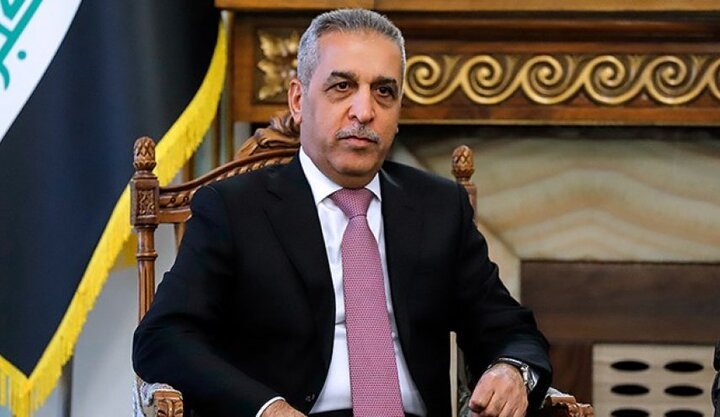In a startling turn of events, the Department of Justice (DOJ) found itself entangled in a web of confusion and controversy surrounding the planned visit of Iraqi judge Faiq Zidan, president of Iraq’s Supreme Judicial Council. The DOJ’s initial enthusiasm to host Zidan, who issued an arrest warrant for former President Donald Trump, took an unexpected twist following inquiries by Fox News Digital.
Faiq Zidan : The DOJ’s Invitation and Abrupt Reversal
The DOJ’s slated welcome for Judge Faiq Zidan, based on his role in issuing an arrest warrant against Trump, raised eyebrows and triggered a swift series of press queries. A source revealed that Zidan was set to visit the DOJ in October, but after intense scrutiny, the DOJ abruptly backtracked, stating, “Zidan will not be meeting with any DOJ officials.” This sudden reversal hinted at potential discord within the U.S. government regarding Zidan’s visit.
State Department and DOJ: Divergent Narratives
The conflicting statements from the State Department and DOJ added layers of mystery to the situation. While the State Department initially acknowledged Zidan’s visit, stating he would be hosted by the DOJ, the subsequent denial of any meetings with DOJ officials sparked speculation. The divergent narratives suggest a possible tension surrounding Zidan’s invitation, considering his pro-Iranian regime stance and rhetoric.
Zidan’s Allegations and Congressional Concerns
Judge Faiq Zidan gained notoriety for issuing an arrest warrant against Trump in connection with the targeted killing of Iranian Qassem Soleimani and Abu Mahdi al-Muhandis in 2020. Iranian-controlled outlets quoted Zidan, claiming Trump confessed to the “crime” of assassinating the “Leaders of Victory.” This prompted congressional concern, with letters expressing alarm sent to President Biden in 2023, highlighting Zidan’s reported actions against Iraqi Kurds and the Kurdistan Regional Government (KRG).
Questions on Sanctions and Human Rights Violations
Congressional representatives, including Michael Waltz, raised questions about potential sanctions against Zidan under the Global Magnitsky Act. The act allows the U.S. government to sanction foreign officials involved in severe human rights abuses.
The February letter asked whether Zidan met criteria for sanctions related to human rights violations, acting as a foreign agent, corruption, and material support. The response from the White House, while not naming Zidan directly, emphasized commitment to visa restrictions and sanctions programs without commenting on specific cases.
Expert Opinions and Call for Accountability
Experts, including Richard Goldberg and Michael Knights, criticized the DOJ’s intended meeting with Zidan. Goldberg emphasized that the DOJ should prioritize protecting Americans targeted by Iran’s Revolutionary Guard Corps (IRGC) rather than hosting someone who seeks to prosecute Americans for combating terrorists. Knights highlighted Zidan’s alleged human rights violations, emphasizing the need for sanctions against him.
Conclusion: The Intrigue Continues
In conclusion, the mysterious sequence of events surrounding the DOJ’s invitation to Iraqi Judge Faiq Zidan raises questions about diplomatic tensions, conflicting narratives, and concerns about human rights violations. As the U.S. government navigates this complex situation, the intrigue surrounding Zidan’s visit to Washington, D.C., adds another layer to the complex geopolitical landscape.

